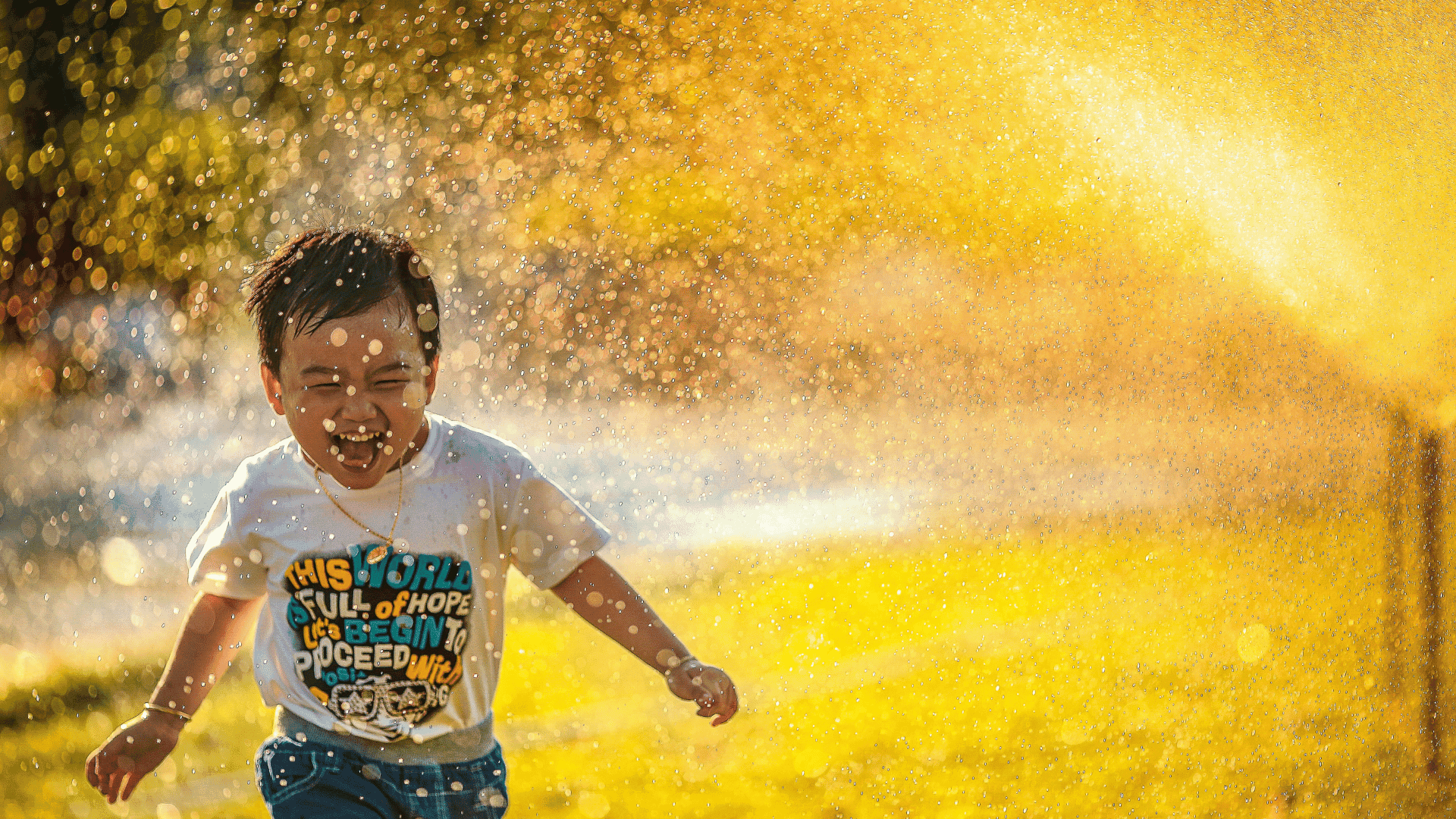The new parent's guide: How to bathe your newborn
The new parent's guide: How to bathe your newborn
When you enter the wonderful world of parenthood, you’ll experience the joys of snuggling with your newborn, showering them with sweet kisses, and marveling at their adorable coos. But despite your wishes for a newborn instruction manual, babies don’t come with one. Newborns are incredibly delicate, and it’s normal if bath time stirs up some nerves. Questions like, "Will my baby slip?", "What type of soap is safe to use?", and "How exactly do I hold them in the tub?" can certainly cause some anxiety. To ease your concerns, we're sharing all the essential bathing tips for a newborn bath.
When you enter the wonderful world of parenthood, you’ll experience the joys of snuggling with your newborn, showering them with sweet kisses, and marveling at their adorable coos. But despite your wishes for a newborn instruction manual, babies don’t come with one. Newborns are incredibly delicate, and it’s normal if bath time stirs up some nerves. Questions like, "Will my baby slip?", "What type of soap is safe to use?", and "How exactly do I hold them in the tub?" can certainly cause some anxiety. To ease your concerns, we're sharing all the essential bathing tips for a newborn bath.

Dahlia Rimmon, RDN
Content Writer

Dr. Marcy Borieux
Pediatrician



When can I bathe my newborn?
The American Academy of Pediatrics (AAP) and World Health Organization (WHO) recommends delaying your baby's first bath to 24 hours after birth. This delay is recommended for several reasons:
It helps keep skin hydrated
You may have noticed that your baby was born covered in a thick, waxy substance. This coating is called vernix, and it serves as a protective layer for their skin in the womb, helping to keep it moisturized. Since it’s a natural moisturizer, it's best to leave the vernix on your baby's skin as long as possible.
It regulates body temperature and blood sugar
According to the AAP, “Babies who get baths right away may be more likely to become cold and develop hypothermia.”
It stabilizes blood sugar
When a baby's body temperature drops after a bath, it can signal stress to their body. Since babies are still adjusting to regulating all bodily functions, this "stress" can lower their blood sugar levels, which is something we want to avoid. That's why it's best to delay giving them a bath during this sensitive time.
What’s the best way to bathe my newborn?
Since babies still have their umbilical cord stump, it’s best to offer your baby a sponge bath, while keeping the umbilical area dry. The umbilical cord stump shouldn’t be fully submerged in water, so offer your baby a sponge bath until the stump falls off, usually around the 2 week mark.
6 steps for giving your baby a sponge bath
Here is a step-by-step guide to giving your newborn a sponge bath.
1. Gather all your supplies
You’ll need an infant bathtub or flat surface, a few soft washcloths, gentle body wash or baby shampoo (fragrance-free and hypoallergenic), and a towel. Keep in mind that you don’t necessarily need to use body wash or shampoo when bathing a newborn.
2. Prepare a bowl of lukewarm water
Be sure the water isn’t too hot, as it can harm your baby and also dry out their delicate skin.
3. Place your baby in an infant tub or lay them down on a flat surface
Once your baby is settled in their infant tub or on a flat surface (like a changing table), always keep one hand on their body to prevent them from moving around or slipping. Wrap them in a cozy towel to keep them warm while you start washing their face and head.
4. Wash your baby’s face and head first
After your baby is wrapped in a cozy towel, get started washing their face. Be careful not to get water in their eyes or mouth. When cleansing around the eyes, gently wipe from the inside corner outward, using a separate section of the washcloth (or a separate washcloth) for each eye. This is important to prevent potential eye infections and to avoid transferring dirt or grime from one eye to the other.
5. Next, wash your baby’s body
Begin by dipping your washcloth in warm water and washing their body. Be sure to pay close attention to all of their tiny folds and cute rolls. Save their little bottom for last, and use a separate washcloth.
6. Dry off and clothe
After your baby is all clean, put on a fresh pair of clothing right away to keep them warm. To lock in moisture, you can apply some moisturizing cream to their skin before dressing them. And of course, don't forget to put on a diaper!
How often should I give my newborn a bath?
There’s no need to give your newborn a sponge bath everyday. Every other day or a few times a week is perfectly fine.
Bath safety tips
Here are some safety tips when bathing your newborn:
Always supervise children during bath time. Never leave children unattended, even for a moment.
Always check the water temperature before bathing.
Use gentle, hypoallergenic, and fragrance-free body wash or soap, which are less irritating than scented or adult soap formulations.
When can I bathe my newborn?
The American Academy of Pediatrics (AAP) and World Health Organization (WHO) recommends delaying your baby's first bath to 24 hours after birth. This delay is recommended for several reasons:
It helps keep skin hydrated
You may have noticed that your baby was born covered in a thick, waxy substance. This coating is called vernix, and it serves as a protective layer for their skin in the womb, helping to keep it moisturized. Since it’s a natural moisturizer, it's best to leave the vernix on your baby's skin as long as possible.
It regulates body temperature and blood sugar
According to the AAP, “Babies who get baths right away may be more likely to become cold and develop hypothermia.”
It stabilizes blood sugar
When a baby's body temperature drops after a bath, it can signal stress to their body. Since babies are still adjusting to regulating all bodily functions, this "stress" can lower their blood sugar levels, which is something we want to avoid. That's why it's best to delay giving them a bath during this sensitive time.
What’s the best way to bathe my newborn?
Since babies still have their umbilical cord stump, it’s best to offer your baby a sponge bath, while keeping the umbilical area dry. The umbilical cord stump shouldn’t be fully submerged in water, so offer your baby a sponge bath until the stump falls off, usually around the 2 week mark.
6 steps for giving your baby a sponge bath
Here is a step-by-step guide to giving your newborn a sponge bath.
1. Gather all your supplies
You’ll need an infant bathtub or flat surface, a few soft washcloths, gentle body wash or baby shampoo (fragrance-free and hypoallergenic), and a towel. Keep in mind that you don’t necessarily need to use body wash or shampoo when bathing a newborn.
2. Prepare a bowl of lukewarm water
Be sure the water isn’t too hot, as it can harm your baby and also dry out their delicate skin.
3. Place your baby in an infant tub or lay them down on a flat surface
Once your baby is settled in their infant tub or on a flat surface (like a changing table), always keep one hand on their body to prevent them from moving around or slipping. Wrap them in a cozy towel to keep them warm while you start washing their face and head.
4. Wash your baby’s face and head first
After your baby is wrapped in a cozy towel, get started washing their face. Be careful not to get water in their eyes or mouth. When cleansing around the eyes, gently wipe from the inside corner outward, using a separate section of the washcloth (or a separate washcloth) for each eye. This is important to prevent potential eye infections and to avoid transferring dirt or grime from one eye to the other.
5. Next, wash your baby’s body
Begin by dipping your washcloth in warm water and washing their body. Be sure to pay close attention to all of their tiny folds and cute rolls. Save their little bottom for last, and use a separate washcloth.
6. Dry off and clothe
After your baby is all clean, put on a fresh pair of clothing right away to keep them warm. To lock in moisture, you can apply some moisturizing cream to their skin before dressing them. And of course, don't forget to put on a diaper!
How often should I give my newborn a bath?
There’s no need to give your newborn a sponge bath everyday. Every other day or a few times a week is perfectly fine.
Bath safety tips
Here are some safety tips when bathing your newborn:
Always supervise children during bath time. Never leave children unattended, even for a moment.
Always check the water temperature before bathing.
Use gentle, hypoallergenic, and fragrance-free body wash or soap, which are less irritating than scented or adult soap formulations.
References
American Academy of Pediatrics (AAP): Bathing Your Baby
American Academy of Pediatrics (AAP): Bathing Your Baby
American Academy of Pediatrics (AAP): Bathing Your Baby
Summer Health offers fast and reliable pediatric urgent care through online doctors, all via text. Whether you’re worried about your baby's fever, rashes, or other children's health concerns, we provide expert advice and support anytime, right from your phone.

Never miss a post!
Sign up for our newsletter to receive articles and guides directly to your inbox!











